- Home
- Bobby Akart
Nuclear Winter Armageddon Page 3
Nuclear Winter Armageddon Read online
Page 3
The colonel had studied the North Koreans’ capabilities more than China and Russia. In his mind, they were the loosest of the loose cannons when it came to nuclear powers. He scowled as he analyzed the Kim regime’s plan of attack.
“They’re using their fixed positions first.”
The clock was ticking. He’d war-planned this scenario a thousand times. Defensive maneuvers were a given. Their retaliatory response was another matter. Only the President of the United States could make that call.
“Sir, we have the defense secretary on the phone.”
The colonel reached for the phone and cupped the mouthpiece with increasingly sweaty palms. His heart was racing as pure adrenalin coursed through his body. Before he addressed the secretary, another airman in the command center spoke excitedly.
“Sir, another launch detected. Strike that. Multiple launches detected. Four, five, six. Check that! We’re up to nine, ten …”
The colonel’s mind tuned out the remainder of the airman’s announcement. God help us, he thought to himself as his mind raced to process what was happening. They’d emptied their fixed missile locations first, the ones America’s intelligence community were aware of. Now they were utilizing their road-mobile ballistic missile launchers, moving targets that were near impossible to track.
The colonel didn’t wait for the final count. He pressed his left index finger into his ear to block out the airman’s announcement and turned his attention to the defense secretary.
“Mr. Secretary, we have multiple ballistic missile launches from the DPRK. Our count is above a dozen, sir. They’re sending everything they’ve got.”
Part I
Day eight, Friday, October 25
Chapter One
Friday, October 25
Interstate 66
Fairfax, Virginia
Peter Albright was paralyzed, his eyes transfixed on the rearview mirror as the spectacle unfolded behind him. The phenomenal destruction inflicted by the nuclear explosion could only be described as an enormous hurricane coupled with an intense firestorm of unprecedented proportion.
He was briefly blinded as the fifty-kiloton bomb detonated somewhere in Washington, DC. The precise location didn’t matter at that moment. Only survival.
Peter had the presence of mind to grab his sling backpack before he flung open the door. He frantically stumbled out of the car, rolling across the rough asphalt pavement of Interstate 66 until he hit the concrete divider with a thud.
He knew what was coming. As if to confirm his fears, he looked back toward the nation’s capital. He blinked twice in an effort to awaken himself from the horror. The conscious act only forced his adrenaline to kick him in the ass.
Peter began to run away from the blast at a pace he didn’t think he was capable of. Stranded motorists, their vehicles’ electronics destroyed by the immediate surge of electromagnetic energy, stood in awe of the spectacle. He didn’t waste his energy on warning them. They’d find out what was coming soon enough.
He zigzagged across the five lanes of traffic, dodging panicked Virginians and stalled cars. A few ran near him. Others stood holding their arms over their eyes to avoid the blinding light that could be seen for a hundred miles.
Then he heard it.
It was a low growl at first. The sound of a beast warning any living being around it that it was dangerous.
Then the growl grew louder. A roar coupled with the rumble of a massive avalanche. It was deafening as it approached faster than Peter’s athletic body could flee it.
Run! Dammit! Run!
He began to stumble just as a wave of searing heat radiated outward from the detonation some eighteen miles away. The scorching wind generated by the massive fireball, the core of which reached tens of millions of degrees, as hot as the sun, swept outward in all directions.
By the time it reached Peter, it was no longer deadly, but it was certainly powerful. It struck him in the back and sent his helpless body flying forward. It was a stroke of luck or the hand of God that saved him.
The wind, coupled with the gravity of the Earth, body-slammed him into the gravel of the highway shoulder. He rolled over and over through the tall grasses, avoiding the steel guardrail because a prior accident had split it into two twisted parts.
Seconds later, Peter found himself facedown in a drainage ditch covered in warm, muddy water. His skin smelled warm. Sunburned. Like he’d spent too much time at Virginia Beach on a scorching August day.
Instinctively, he tossed and turned in the shallow water, covering himself with moisture. His mind thought he was on fire. He wasn’t, but the blast of heat he’d endured had certainly incinerated others closer to Washington.
Peter couldn’t recall how long he’d lain in the ditch. It could’ve been seconds or minutes. Eventually, the worst of the heated air had passed, and the roar that accompanied it had quietened. It was replaced by the sound of despair.
People screamed for help. They cried with angst. Others shouted instructions as if they were experts in surviving a nuclear explosion. Still more stood in awe, mouths open, watching the mushroom cloud rise to the heavens, illuminated by the flames roaring uncontrollably outward from the blast along the surface of the earth. Hungrily devouring buildings and vaporizing people in a flash, their charred bodies crumbling into ash onto the scorched ground.
As the fireball traveled outward from ground zero, the intense heat set gas lines, fuel tanks, and power lines on fire. The electromagnetic pulse destroyed anything electronic within two hundred miles of the ground detonation.
The colossal pressure wave hurtled outward at five hundred miles per hour, crossing the Potomac River, demolishing everything within seven miles. Houses made of wood were torched. Sturdier block, brick and steel construction might have remained standing. However, only their naked and warped steel structural supports remained. Utility poles snapped like toothpicks. The wave whipped through green space, snapping trees and leveling landscape. People were flung through the air and pummeled by deadly projectiles of brick, glass, and metal.
At the point of detonation, a crater fifty feet deep with a diameter stretching beyond the Pentagon was quickly filled with the now-boiling water of the Potomac River as it rushed to fill the void where the heart of America’s government once beat.
All of this happened within the first few minutes.
Peter had suddenly become hyperaware of his surroundings. His mind raced as he tried to recall everything he’d learned about the aftermath of a nuclear explosion. Living in the DC area, the thought of being the number one target of nuclear-capable nations made him more than a casual reader of news reports leading up to that night. A word kept popping into his head.
Fallout.
The moment a nuclear bomb detonates, several forms of radiation instantly permeate the surroundings. For those near the point of impact who were fortunate enough to survive the incendiary effects, the threat of radioactive fallout was very real. As the pulse of radiation surged away from the blast, the bodies of every living being who was outside or in inadequately insulated buildings were prone to the fallout. Radiation wreaked biological havoc on the human body. At the molecular level, it immediately began to alter human DNA, impairing the ability of cells to replicate and repair themselves from damage.
Within minutes to hours, based upon proximity to the blast site, most people exposed would begin to show signs of acute radiation syndrome, including nausea, headache, dizziness, and vomiting. Within several days to two weeks later, new symptoms would emerge. In addition to purple blotches and lesions occurring on the skin, diarrhea, hair loss, fever, seizures, and bleeding from the mouth were common. In the most severe cases, people would become delirious and mentally incapacitated.
One thing would be certain. The majority of humans with radiation sickness would die because they no longer had enough immune cells to fight off any sort of infection or because their digestive system was too damaged to function properly.
Re
gardless of the cause, death was guaranteed.
Peter Albright didn’t want to die. He lifted his battered body out of the drainage ditch, adjusted his sling pack, and stumbled up the embankment toward the hard surface of the highway. Others were scurrying down the slope, splashed through the ditch and up the other side toward an apartment complex.
Just as Peter reached the pavement, he glanced over his shoulder as several people began cursing in frustration. A ten-foot-tall chain-link fence had thwarted their efforts to reach the residential area.
Joining dozens of others who raced past him, he mustered the strength to begin running once again, ignoring the scrapes, cuts, and bruises his body had endured. He needed to find a place of safety. A shelter of any kind to protect him from the radiation that would soon be raining down all around him.
Chapter Two
Friday, October 25
Fair Oaks Mall
Fairfax, Virginia
Peter glanced at his yellow Casio G-shock dive watch, a gift from his father when he graduated from high school. It had been his constant companion for years, but now, like his car, it had ceased to function. As he began to pass the pack of frightened motorists, he glanced up at the steel structure holding the interstate directional signs. Ordinarily green with reflective lettering, they were now scorched and difficult to read. Not that it mattered because he planned on taking the exit anyway.
The asphalt turned to unforgiving concrete, much to the chagrin of Peter, who enjoyed running. His daily four-mile jogs were paying off if he could only put the pain of the fall out of his mind. There was no time to lament the fact his muscles were begging for a rest. All Peter could think about was the radioactive fallout.
At the end of the exit ramp, he saw a hulking structure perched on a hill before him. He’d been to the Fair Oaks Mall on one other occasion to purchase a pair of Asics running shoes at Dick’s Sporting Goods. The mall seemed like a good place to hunker down. It was a large structure with plenty of walls protecting him from the environmental disaster that was surely headed his way.
He rushed across the median separating the east- and westbound lanes of Lee Jackson Memorial Highway. He glanced up at the mid-rise Marriott hotel. People were standing on their balconies, staring toward DC. Some had flashlights while others lit candles that flickered wildly in the heated air.
Peter hustled up the embankment into the mostly empty mall parking lot. At nearly four in the morning, he expected it to be devoid of activity. He was wrong.
There were only a few sporadically parked vehicles left behind from the night before. There were, however, dozens of people racing in and out of the plate-glass doors of Macy’s. Some were dragging children by the arms, urging them to hurry to safety. They waited for an opportunity to push through the broken panes of glass to enter the building.
Also, there were the opportunists. The inevitable thieves and looters who took advantage of a catastrophe to seemingly enrich themselves. They rushed out of the store, their arms wrapped around piles of clothing, into the open arms of a cloud of nuclear radiation they’d never see until the effect on their bodies revealed itself.
Peter followed a young family through the opening into the darkness of Macy’s men’s department. Shouts filled the air. A fight had broken out in the shoe department. Names were called out as loved ones searched for those who’d gotten lost in the mayhem.
Peter got his bearings and tried to remember the mall layout. His first thought was to find his way to the center of the complex as far away from these breached doors as possible. He presumed, rightfully so, that if the looters had opened up Macy’s, they’d done the same to the other retail stores.
Like a running back breaking tackles in pursuit of the end zone, Peter bowled over anyone in his way. He was in a battle to save his own life and didn’t care about those who impeded him. After a minute, he’d made his way into the center atrium of the mall.
Fair Oaks had been built forty-five years prior, when tall glass entries and skylight atriums were in vogue. For Peter, neither suited his purposes although it was still his best option. As he walked briskly through the center, he came across groups of refugees huddled in the dark recesses of the mall. Children were crying. Parents were trying to comfort them. They all tried to make sense of what was happening outside.
The sounds of breaking glass and shouting permeated the air. Peter was astounded at the dichotomy of reactions by those who’d entered the mall. Some, like himself, sought refuge. Others took this opportunity to steal.
He tried to avoid coming into contact with the frantic looters who searched for the most high-end retail stores to improve their lot in life. Peter pushed toward the back side of the mall where Dick’s Sporting Goods was located. It was far away from the two-story, all-glass main entrance that was being used by the majority of people coming and going.
As he fumbled through the mall in the pitch darkness, his mind wandered to his family. He tried to be logical as he considered the top nuclear targets in the U.S. He was comfortable his father and uncle were safe from the effects of a nuclear blast. It was possible Miami had been attacked because of its population, but doubtful. He couldn’t think of any strategic military interest in the Miami-Dade area that would rank above the more high-value options on the West Coast.
He took a deep breath as he thought of Lacey, Owen, and Tucker. Had they heeded his warnings? Did they leave as he’d subtly suggested? Should he have been more forceful in his warnings? Peter had to believe his sister and her family were safe. There was nothing he could do about saving them.
Suddenly, chaos broke out outside Champs, a sports retail store specializing in footwear and apparel. People were rushing down the escalators, holding six or eight boxes of sneakers. One lost his balance and fell forward, losing his loot and knocking down several of his compatriots in the process.
Peter shook his head in disbelief, but the overall scene reminded him of a simple fact. Other than his sling backpack, which contained his handguns and ammunition, he had nothing but the sopping wet clothing he was wearing. He would also have to become a looter. Not just to wear dry clothes, but to survive.
For it was in that instant that reality hit him. He mumbled to himself, “Exactly what, pray tell, Mr. Peter Albright, do you plan on doing now?”
He reached the entrance to Dick’s, where a logjam occurred as people tried to slide under the storefront’s grilled gate that had been forced open. A concrete planter had been overturned and jammed underneath to prevent it from closing.
Peter secured his sling pack and decided to join in the fray. He crawled underneath the gate and made his way into the dark, two-story sporting goods store. To his left, voices shouted to one another. From prior visits, he remembered footwear and workout clothing were located there. He’d come back to it when and if the fight over sneakers subsided.
He briskly walked into the center of the store, where a mountain-like display with a pond had been constructed. The water had stopped flowing due to the power outage and had filled the catch basin to capacity. Peter immediately wondered if it was drinkable.
He made his way to the far end of the store where guns and ammunition were once sold. The hunting rifles had been replaced with archery equipment and an indoor archery range. In the dark, he could make out the crossbows. He shook his head as he considered whether he should add one to his personal arsenal. Only guys named Daryl can shoot one of these, he thought to himself. And all he could kill was something that was already dead and stinkin’.
Nonetheless, he ran behind the counter where the crossbows were sold. He fumbled in the dark until he found the handle of a hard plastic case and grabbed it.
With his crossbow in hand, Peter made his way past the hunting and fishing equipment until he found camping gear. He hesitated as he approached the darkest part of the store. Suddenly, two young men rushed past him, inadvertently striking him in the back until he spun around and crashed to the tile floor. He lost control of the cros
sbow case, which could be heard sliding down the floor until it struck something with a whack. Abandoning any thought of retrieving it, he sat there for a moment to catch his breath.
The impact had knocked the wind out of him, and it reminded him of the damage his body had endured during the blast wave. It also gave him an opportunity to get his priorities straight. The looters weren’t shopping in the departments Peter had identified as the most important—survival gear. They were after clothing and shoes. He needed to find a windowless part of the mall to shelter in place for a couple of days until the radioactive fallout dissipated.
As morning came, the daylight would illuminate enough of the mall stores for him to procure what he needed to survive another day.
Chapter Three
Friday, October 25
Placer High School
Auburn, California
In the basement of Placer High School’s gymnasium, after winding down three flights of concrete steps, a single ominous door made of steel was embedded in the filled-concrete wall. Once painted a forest green color, time had peeled away the paint and revealed its true battleship-gray exterior. On the wall, there were several screw holes where the yellow-and-black nuclear fallout shelter sign had once been posted. Now it was either hanging in a mischievous student’s bedroom or had been passed from one person to another via eBay.
Behind the door, chaos reigned.
The bunker had been a symbol of the Cold War era dating back to the sixties, but eventually diminished in importance during the Reagan administration. The Auburn Union School District quickly found more important things to spend their budgets on, and the fallout shelter was mostly neglected.
The last time its electrical wiring, backup batteries, or supply rooms had been maintained was eleven years ago. What was once meant to be the Auburn community’s Noah’s Ark against the deadly effects of radiation was now an empty concrete shell that was more coffin than shelter.

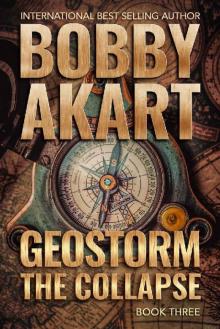 Geostorm The Collapse: A Post Apocalyptic EMP Survival Thriller (The Geostorm Series Book 3)
Geostorm The Collapse: A Post Apocalyptic EMP Survival Thriller (The Geostorm Series Book 3)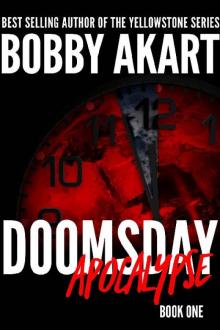 Doomsday Apocalypse
Doomsday Apocalypse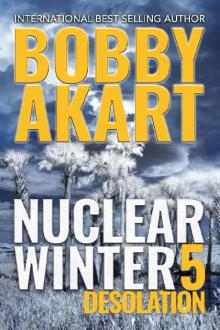 Nuclear Winter Desolation: Post Apocalyptic Survival Thriller (Nuclear Winter Series Book 5)
Nuclear Winter Desolation: Post Apocalyptic Survival Thriller (Nuclear Winter Series Book 5)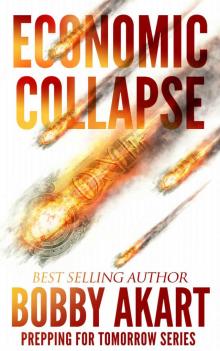 Economic Collapse (Prepping for Tomorrow Book 2)
Economic Collapse (Prepping for Tomorrow Book 2)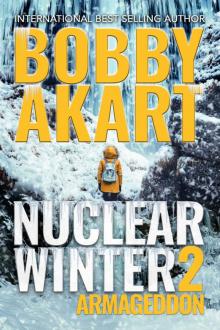 Nuclear Winter Armageddon
Nuclear Winter Armageddon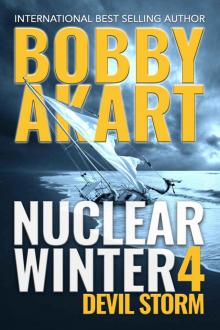 Nuclear Winter Devil Storm
Nuclear Winter Devil Storm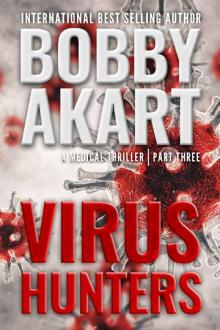 Virus Hunters 3: A Medical Thriller
Virus Hunters 3: A Medical Thriller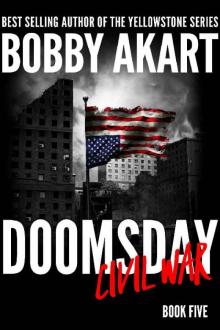 Doomsday Civil War: A Post-Apocalyptic Survival Thriller (The Doomsday Series Book 5)
Doomsday Civil War: A Post-Apocalyptic Survival Thriller (The Doomsday Series Book 5)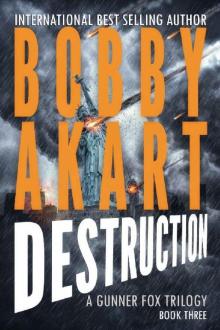 Asteroid Destruction
Asteroid Destruction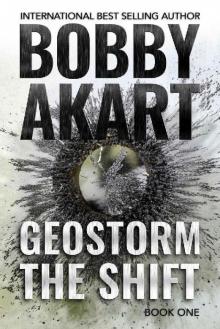 Geostorm the Shift
Geostorm the Shift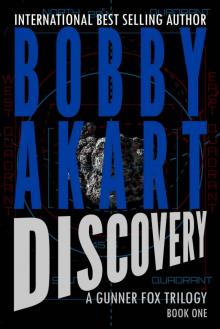 Asteroid Discovery
Asteroid Discovery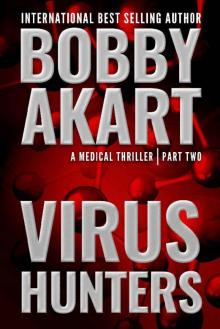 Virus Hunters 2: A Medical Thriller
Virus Hunters 2: A Medical Thriller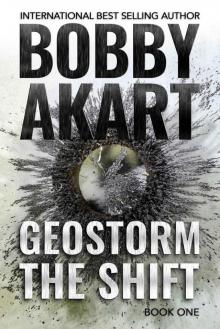 Geostorm The Shift: A Post-Apocalyptic EMP Survival Thriller (The Geostorm Series Book 1)
Geostorm The Shift: A Post-Apocalyptic EMP Survival Thriller (The Geostorm Series Book 1)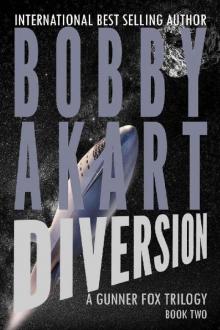 Asteroid Diversion
Asteroid Diversion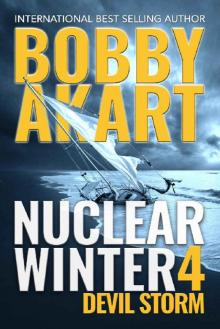 Nuclear Winter Devil Storm: Post Apocalyptic Survival Thriller (Nuclear Winter Series Book 4)
Nuclear Winter Devil Storm: Post Apocalyptic Survival Thriller (Nuclear Winter Series Book 4)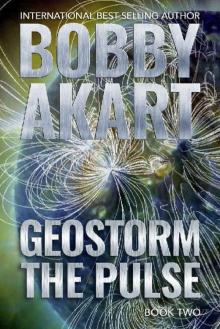 Geostorm The Pulse: A Post Apocalyptic EMP Survival Thriller (The Geostorm Series Book 2)
Geostorm The Pulse: A Post Apocalyptic EMP Survival Thriller (The Geostorm Series Book 2)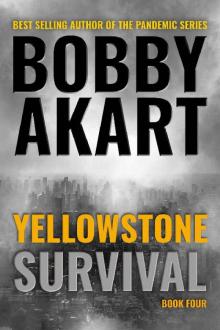 Yellowstone: Survival: A Post-Apocalyptic Survival Thriller (The Yellowstone Series Book 4)
Yellowstone: Survival: A Post-Apocalyptic Survival Thriller (The Yellowstone Series Book 4)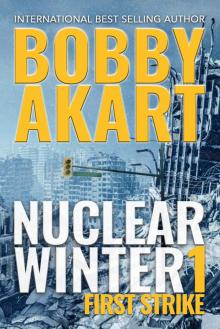 Nuclear Winter First Strike: Post-Apocalyptic Survival Thriller
Nuclear Winter First Strike: Post-Apocalyptic Survival Thriller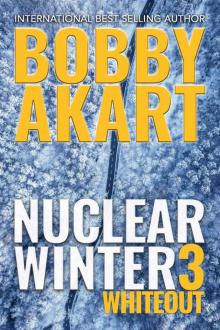 Nuclear Winter Whiteout
Nuclear Winter Whiteout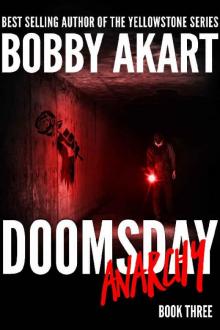 Doomsday Anarchy
Doomsday Anarchy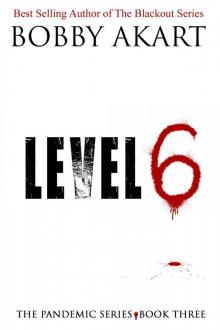 Pandemic: Level 6: A Post Apocalyptic Medical Thriller Fiction Series (The Pandemic Series Book 3)
Pandemic: Level 6: A Post Apocalyptic Medical Thriller Fiction Series (The Pandemic Series Book 3) Martial Law
Martial Law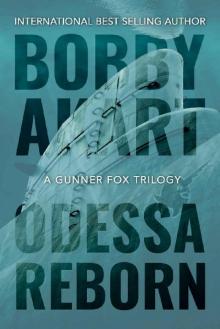 Odessa Reborn: A Terrorism Thriller (Gunner Fox Book 4)
Odessa Reborn: A Terrorism Thriller (Gunner Fox Book 4)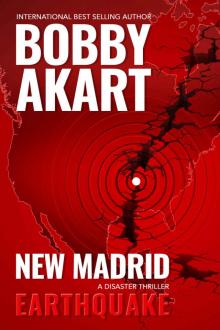 New Madrid Earthquake
New Madrid Earthquake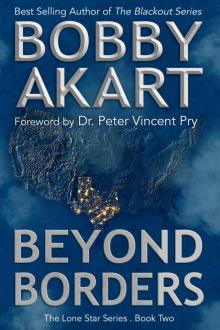 Beyond Borders: Post Apocalyptic EMP Survival Fiction (The Lone Star Series Book 2)
Beyond Borders: Post Apocalyptic EMP Survival Fiction (The Lone Star Series Book 2)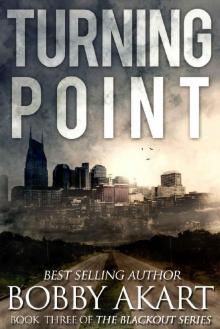 The Blackout Series (Book 3): Turning Point
The Blackout Series (Book 3): Turning Point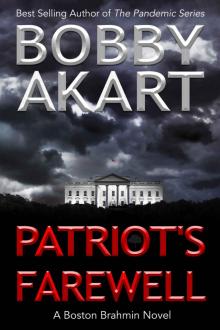 Patriot's Farewell: A Political Thriller Fiction Series (Boston Brahmin Political Thrillers Book 7)
Patriot's Farewell: A Political Thriller Fiction Series (Boston Brahmin Political Thrillers Book 7)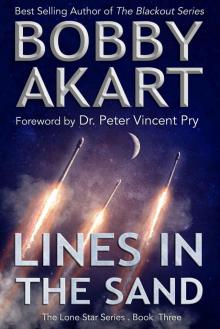 Lines in the Sand_Post Apocalyptic EMP Survival Fiction
Lines in the Sand_Post Apocalyptic EMP Survival Fiction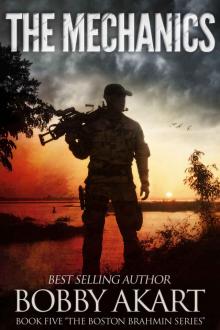 The Mechanics: A Post-Apocalyptic Fiction Series
The Mechanics: A Post-Apocalyptic Fiction Series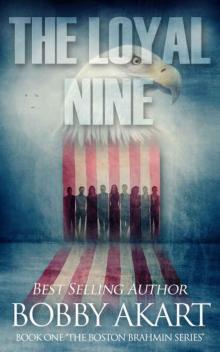 The Loyal Nine
The Loyal Nine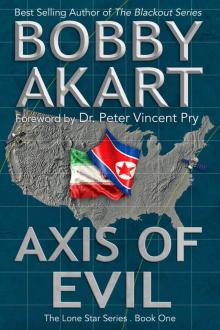 Axis of Evil
Axis of Evil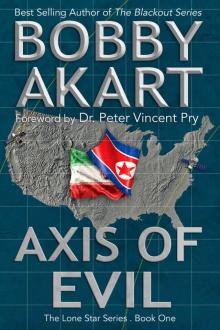 Axis of Evil: Post Apocalyptic EMP Survival Fiction (The Lone Star Series Book 1)
Axis of Evil: Post Apocalyptic EMP Survival Fiction (The Lone Star Series Book 1)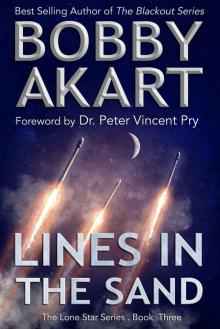 Lines in the Sand: Post Apocalyptic EMP Survival Fiction (The Lone Star Series Book 3)
Lines in the Sand: Post Apocalyptic EMP Survival Fiction (The Lone Star Series Book 3)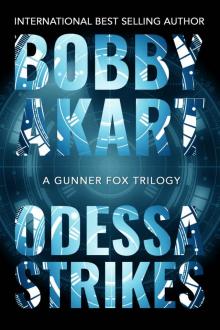 Odessa Strikes
Odessa Strikes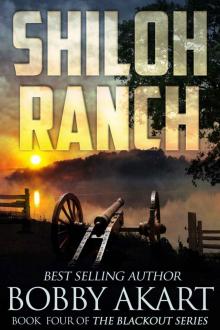 The Blackout Series (Book 4): Shiloh Ranch
The Blackout Series (Book 4): Shiloh Ranch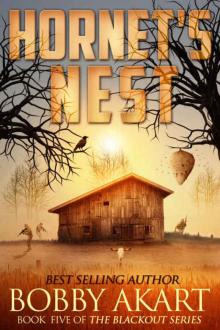 Hornet's Nest: A Post Apocalyptic EMP Survival Fiction Series (The Blackout Series Book 5)
Hornet's Nest: A Post Apocalyptic EMP Survival Fiction Series (The Blackout Series Book 5)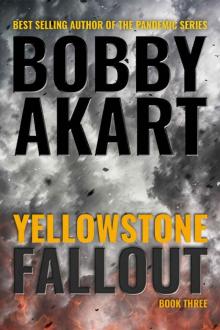 Yellowstone: Fallout: A Post-Apocalyptic Survival Thriller (The Yellowstone Series Book 3)
Yellowstone: Fallout: A Post-Apocalyptic Survival Thriller (The Yellowstone Series Book 3)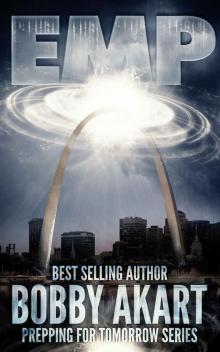 Electromagnetic Pulse
Electromagnetic Pulse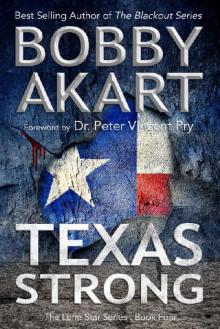 Texas Strong: Post Apocalyptic EMP Survival Fiction (The Lone Star Series Book 4)
Texas Strong: Post Apocalyptic EMP Survival Fiction (The Lone Star Series Book 4)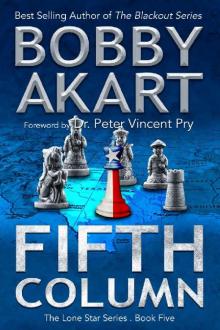 Fifth Column_Post Apocalyptic EMP Survival Fiction
Fifth Column_Post Apocalyptic EMP Survival Fiction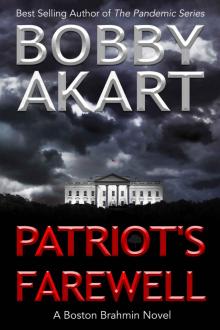 Patriot's Farewell
Patriot's Farewell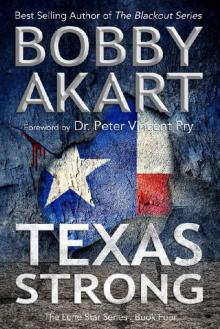 Texas Strong_Post Apocalyptic EMP Survival Fiction
Texas Strong_Post Apocalyptic EMP Survival Fiction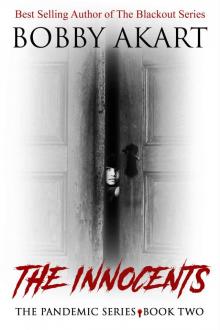 Pandemic: The Innocents: A Post-Apocalyptic Medical Thriller Fiction Series (The Pandemic Series Book 2)
Pandemic: The Innocents: A Post-Apocalyptic Medical Thriller Fiction Series (The Pandemic Series Book 2)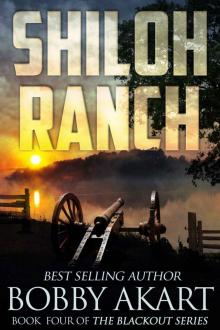 Shiloh Ranch: A Post Apocalyptic EMP Survival Fiction Series (The Blackout Series Book 4)
Shiloh Ranch: A Post Apocalyptic EMP Survival Fiction Series (The Blackout Series Book 4)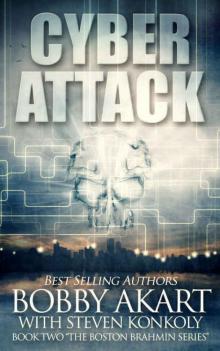 Cyber Attack
Cyber Attack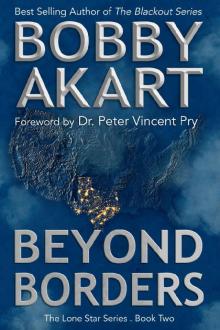 Beyond Borders
Beyond Borders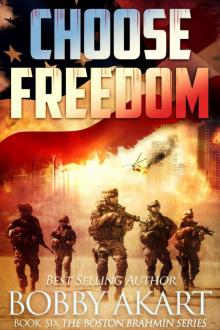 Choose Freedom: A Post-Apocalyptic Fiction Series (The Boston Brahmin Book 6)
Choose Freedom: A Post-Apocalyptic Fiction Series (The Boston Brahmin Book 6)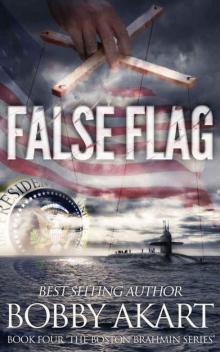 False Flag
False Flag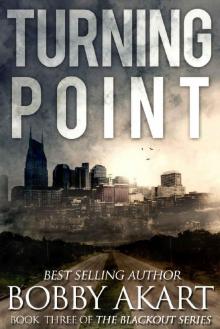 Turning Point: A Post Apocalyptic EMP Survival Fiction Series (The Blackout Series Book 3)
Turning Point: A Post Apocalyptic EMP Survival Fiction Series (The Blackout Series Book 3)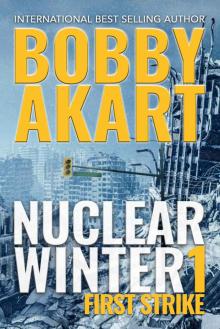 Nuclear Winter First Strike
Nuclear Winter First Strike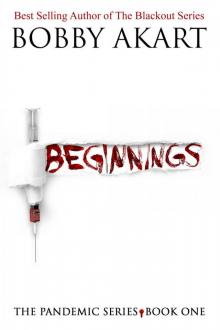 Pandemic: Beginnings: A Post-Apocalyptic Medical Thriller Fiction Series (The Pandemic Series Book 1)
Pandemic: Beginnings: A Post-Apocalyptic Medical Thriller Fiction Series (The Pandemic Series Book 1)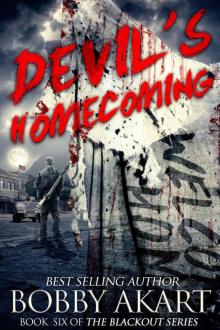 Devil's Homecoming: A Post Apocalyptic EMP Survival Fiction Series (The Blackout Series Book 6)
Devil's Homecoming: A Post Apocalyptic EMP Survival Fiction Series (The Blackout Series Book 6)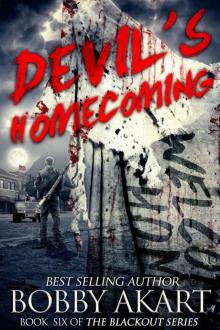 The Blackout Series (Book 6): Devil's Homecoming
The Blackout Series (Book 6): Devil's Homecoming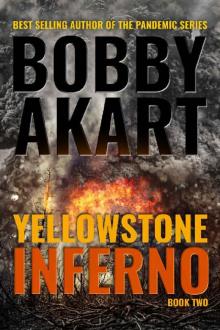 Yellowstone: Inferno: A Post-Apocalyptic Survival Thriller (The Yellowstone Series Book 2)
Yellowstone: Inferno: A Post-Apocalyptic Survival Thriller (The Yellowstone Series Book 2)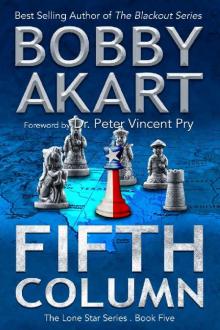 Fifth Column: Post Apocalyptic EMP Survival Fiction (The Lone Star Series Book 5)
Fifth Column: Post Apocalyptic EMP Survival Fiction (The Lone Star Series Book 5)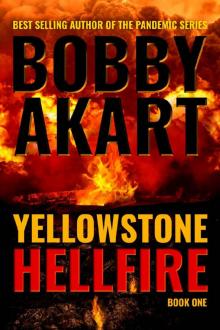 Yellowstone: Hellfire: A Post-Apocalyptic Survival Thriller (The Yellowstone Series Book 1)
Yellowstone: Hellfire: A Post-Apocalyptic Survival Thriller (The Yellowstone Series Book 1)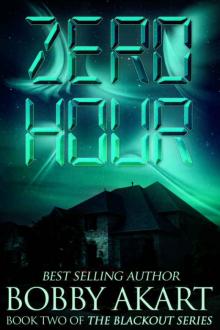 The Blackout Series (Book 2): Zero Hour
The Blackout Series (Book 2): Zero Hour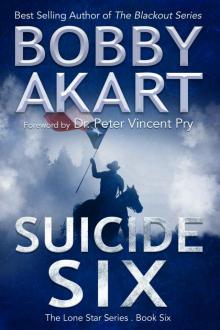 Suicide Six: Post Apocalyptic EMP Survival Fiction (The Lone Star Series Book 6)
Suicide Six: Post Apocalyptic EMP Survival Fiction (The Lone Star Series Book 6)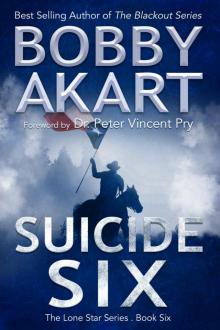 Suicide Six_Post Apocalyptic EMP Survival Fiction
Suicide Six_Post Apocalyptic EMP Survival Fiction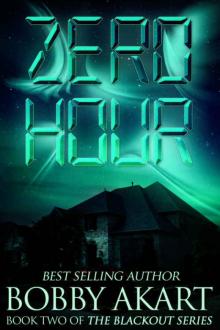 Zero Hour: A Post-Apocalyptic EMP Survival Fiction Series (The Blackout Series Book 2)
Zero Hour: A Post-Apocalyptic EMP Survival Fiction Series (The Blackout Series Book 2)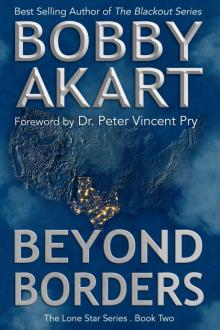 Beyond Borders_Post Apocalyptic EMP Survival Fiction
Beyond Borders_Post Apocalyptic EMP Survival Fiction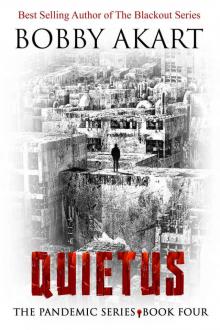 Pandemic: Quietus: A Post-Apocalyptic Dystopian Fiction Series (The Pandemic Series Book 4)
Pandemic: Quietus: A Post-Apocalyptic Dystopian Fiction Series (The Pandemic Series Book 4)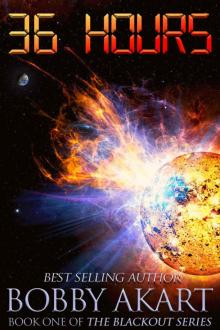 36 Hours: A Post-Apocalyptic EMP Survival Fiction Series
36 Hours: A Post-Apocalyptic EMP Survival Fiction Series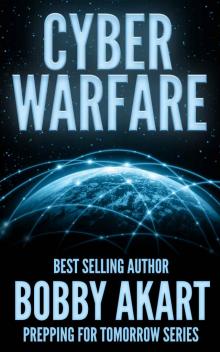 Cyber Warfare
Cyber Warfare